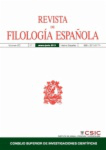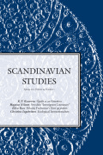
Studia Universitatis Babes-Bolyai Philologia
metrics 2024
Catalyzing Scholarly Conversations in Philology
Introduction
Welcome to Studia Universitatis Babes-Bolyai Philologia, a distinguished journal published by UNIV BABES-BOLYAI, which has proudly embraced Open Access since 2021. With an ISSN of 1220-0484 and an E-ISSN of 2065-9652, this journal serves as a vital platform for scholars in the field of philology, offering a rich repository of contemporary research and innovative thought. Hailing from the vibrant academic community of Cluj-Napoca, Romania, the journal aims to foster interdisciplinary dialogue and promote cutting-edge studies that explore linguistic, literary, and cultural dynamics across the globe. By providing unrestricted access to its content, Studia Universitatis Babes-Bolyai Philologia ensures that vital research is available to a worldwide audience, empowering researchers, professionals, and students to engage with and contribute to the ever-evolving discourse in philological studies.
Metrics 2024
 -
- -
- -
- -
-Metrics History
Rank 2024
JCI (Web Of Science)
Quartile History
Similar Journals

Cadernos de Letras da UFF
Enhancing Academic Collaboration in the HumanitiesCadernos de Letras da UFF is a prominent academic journal published by the Department of History at the Federal University of Fluminense in Brazil. Since its transition to Open Access in 2014, it has fostered a spirit of collaboration and dissemination in the field of Literature and Linguistics, welcoming contributions that explore various aspects of literary studies, historical literature contexts, and linguistic phenomena. With a commitment to quality and academic rigor, the journal serves as a vital resource for scholars, practitioners, and students engaged in the humanities. The journal is dedicated to the advancement of knowledge through innovative research and critical analyses, making it an essential platform for sharing ideas with a global audience. The journal is based in Niterói, RJ, Brazil, and is indexed in various academic databases, enhancing its visibility and impact within the scholarly community.

Cuadernos de Rusistica Espanola
Advancing Knowledge in Comparative Linguistics and CultureCuadernos de Rusistica Española is an esteemed scholarly journal dedicated to the field of Spanish and Russian studies, published by EDITORIAL UNIV GRANADA. With its commitment to Open Access since 2005, the journal fosters wide dissemination of knowledge and research, aiding scholars and students alike in exploring the intricate connections between Spanish and Russian linguistics, literature, and cultural studies. Based in Granada, Spain, the journal spans a broad scope of topics, making it a crucial resource for researchers aiming to advance understanding in comparative literature, language studies, and interdisciplinary approaches. The ISSN for the print version is 1698-322X and for the online version, 2340-8146. As an open-access platform, it increases accessibility and engagement with cutting-edge research findings, making it a vital contribution to the academic community.

Nueva Revista Filologia Hispanica
Unlocking the Richness of Hispanic Culture and LanguageNueva Revista Filologia Hispánica, published by COLEGIO MEXICO, A C, DEPT PUBLICACIONES, has been a pivotal resource in the field of Hispanic philology since its establishment in 1966, transitioning to an open-access model that enhances the accessibility of scholarly works in the area. With an ISSN of 0185-0121 and an E-ISSN of 2448-6558, the journal is housed in Mexico City and aims to publish innovative research that contributes to the understanding of the linguistic and cultural dynamics of the Spanish language. It consistently ranks in the Q3 category of Linguistics and Language for 2023, reflecting its commitment to academic excellence as demonstrated by its Scopus ranking in both Arts and Humanities and Social Sciences. With converged years from 2011 to 2024, the journal encourages contributions that inspire further discourse among researchers, professionals, and students, thus solidifying its importance as a scholarly platform in the linguistics landscape.

Baltic Journal of English Language Literature and Culture
Cultivating Global Voices in English Language and CultureBaltic Journal of English Language Literature and Culture is a prominent platform for scholarly discourse in the fields of English language, literature, and cultural studies, published by University of Latvia Press since its inception. With an ISSN of 1691-9971 and an e-ISSN of 2501-0395, the journal has established itself as an Open Access resource since 2018, making it accessible to a global audience of researchers, academicians, and students. Located in Riga, Latvia, this journal endeavors to bridge gaps in the understanding of linguistic and literary developments, particularly in the Baltic region. Although it faces competitive ranking in the Scopus database, underscored by its current rankings of #1055 in Literature and Literary Theory and #1063 in Language and Linguistics, the journal continues to attract contributions that reflect innovative research and inquiry. Through its open-access model, Baltic Journal of English Language Literature and Culture is dedicated to fostering a diverse range of perspectives and nurturing dialogue that enriches the understanding of the English language’s intersection with culture and literature.

Academic Journal of Modern Philology
Advancing the Frontiers of Philological InquiryWelcome to the Academic Journal of Modern Philology, a premier platform dedicated to advancing the field of philology and linguistics. Published by the esteemed Committee Philology Polish Academy of Sciences, Wroclaw Branch, this open-access journal has been committed to disseminating high-quality research since 2014, ensuring widespread access and engagement within the scholarly community. With an ISSN of 2299-7164 and an E-ISSN of 2353-3218, the journal invites contributions that push the boundaries of contemporary philological inquiry, bridging traditional scholarship with modern linguistic challenges. Situated in Poland's vibrant academic milieu, it aims to foster interdisciplinary dialogue while highlighting the importance of philology in understanding cultural and linguistic diversity. Researchers, professionals, and students alike will find a wealth of insightful articles that contribute to the evolving landscape of modern language studies.

MESTER
Advancing Cultural Discourse and Literary InsightsMESTER is a distinguished academic journal published by the UCLA College of Humanities, known for its commitment to advancing research in the fields of Cultural Studies, Linguistics and Language, and Literature and Literary Theory. With an ISSN of 0160-2764, this journal serves as a vital platform for scholars and professionals to disseminate innovative research and critical perspectives from diverse theoretical frameworks and cultural contexts. Although currently operating without an Open Access model, MESTER continues to uphold a rigorous peer-review process, ensuring that published articles maintain high academic standards. Recognized for its selective focus, MESTER holds a Q4 categorization in Cultural Studies and Linguistics, and Q3 in Literature and Literary Theory, situating it as a relevant, if emerging, voice within these disciplines. Housed within the significant repository of knowledge at UCLA, the journal beckons researchers, students, and practitioners to engage with its contributions to the humanities and build upon its foundations in cultural discourse.

Lingue Antiche e Moderne
Unlocking the Secrets of Language EvolutionLingue Antiche e Moderne is an esteemed open-access academic journal dedicated to the study of ancient and modern languages, published by UNIV STUDI UDINE. Since its inception in 2012, the journal has provided a platform for researchers, professionals, and students to disseminate groundbreaking studies and interdisciplinary research in linguistics and philology. With a commitment to accessibility, Lingue Antiche e Moderne encourages the sharing of knowledge across a global audience, ensuring that innovative ideas and historical insights are readily available to all. The journal plays a crucial role in advancing our understanding of linguistic evolution and cultural interchange, making it a vital resource for anyone interested in the dynamics of language through time. The ISSN for the journal is 2281-4841, ensuring its recognition in the academic community. Researchers and contributors are invited to engage with this vibrant discourse while enriching their own scholarly endeavors.

REVISTA DE FILOLOGIA ESPANOLA
Unveiling Insights in Linguistics and Literary TheoryREVISTA DE FILOLOGIA ESPANOLA is a distinguished academic journal dedicated to the fields of linguistics and literature, published by the CONSEJO SUPERIOR INVESTIGACIONES CIENTIFICAS (CSIC) since 1954, and has been an Open Access journal since its inception. Situated in Madrid, Spain, this journal has emerged as a crucial platform for the dissemination of scholarly research, with notable rankings including Q2 in Linguistics and Language and Q1 in Literature and Literary Theory as of 2023. The journal's commitment to fostering academic dialogue is reflected in its impressive Scopus rankings, including a 79th percentile in the Arts and Humanities for Literature and Literary Theory. Covering a wide range of topics from linguistic theory to literary critique, REVISTA DE FILOLOGIA ESPANOLA is essential reading for researchers, professionals, and students alike, providing valuable insights and cutting-edge research in the ever-evolving landscape of Spanish philology.

Philologica Canariensia
Fostering innovation in humanities scholarship.Philologica Canariensia is a distinguished academic journal published by the University of Las Palmas de Gran Canaria, focusing on the vibrant fields of Literature and Literary Theory as well as Linguistics and Language. With an impact factor that positions it in the Q1 and Q2 quartiles in its respective categories as of 2023, the journal has established itself as an important platform for scholarly communication and research. Since transitioning to Open Access in 2014, it has broadened its reach, allowing researchers, professionals, and students from around the globe to access high-quality publications without barriers. With a commendable presence in Scopus rankings, including a rank of #309 out of 1106 in Literature and Literary Theory, Philologica Canariensia aims to foster an interdisciplinary dialogue and advance knowledge in the humanities. The journal's commitment to publishing innovative research makes it an essential resource for anyone engaged in exploring linguistic and literary phenomena.

SCANDINAVIAN STUDIES
Cultivating Insights into the Scandinavian Academic RealmSCANDINAVIAN STUDIES is a prestigious journal dedicated to advancing the understanding of Scandinavian languages, literature, and culture. Published by the Society for the Advancement of Scandinavian Studies in the United States, this journal has been a key resource for scholars since its inception in 1974, covering a breadth of topics in both Linguistics and Literary Theory. With an impactful presence within academic circles, it has achieved a notable ranking in the Q2 category for Literature and Literary Theory, and Q3 for Linguistics and Language, ensuring its relevance among leading journals in the humanities. The journal is indexed in reputable databases, including Scopus, where it ranks in the 65th percentile for literature studies. Although it is not open access, SCANDINAVIAN STUDIES provides critical insights and scholarly contributions that greatly enhance discourse in Scandinavian studies. Researchers, professionals, and students alike will find this journal a valuable tool for deepening their understanding of the rich tapestry of Scandinavian contributions to world culture.